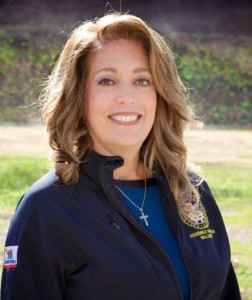News from Jerome Horton
News from Jerome Horton
BOE Member Horton Sponsors ACA 24 (Waldron)
To Expand Disaster Relief for Property Taxpayers

Assembly Member Marie Waldron, 75th District, announced today that she is authoring ACA 24 to provide relief for the property owners that were affected by the devastating wildfires last year, and the mudslides that followed. Jerome E. Horton, 3rd District Board Member of the State Board of Equalization is the primary sponsor of the measure.
This amendment will allow the application of base-year value transfers to a replacement home in any county for individuals whose home was substantially damaged or destroyed in a Governor-declared disaster occurring between January 1, 2017, and June 30, 2018.
Over the last year, California has suffered a number of devastating natural disasters across the state, including the Lilac Fire in the 75th Assembly district, displacing residents and destroying homes. As a result, residents are forced to move out of their communities and relocate due to the devastation and uncertainty surrounding their old communities. In an effort to alleviate hardships caused by fire, flooding, and mud slides, this amendment seeks to allow homeowners to transfer their base-year value to a replacement home.
“We must help our residents who lost everything due to the natural disasters that ravished our great state,” said Assembly Member Marie Waldron. “This ACA will help them rebuild their lives.”
Natural disasters bring great damage, loss, destruction and devastation to life, property, and infrastructure. Last year was no exception for California, specifically with the unprecedented wildfires and mudslides that have created challenges for many local communities. In the aftermath of these disasters, rebuilding can take several months to several years to navigate the process.
“California, while rich in resources, has the highest poverty rate in the country. It is my duty as an elected official to support policies that help the State’s most vulnerable and those in need, and ACA 24 lends support to the thousands displaced by last year’s disasters,” Horton said.
Assembly Member Waldron strongly believes that allowing the application of base-year value transfers to a replacement home in any county for individuals whose home was substantially damaged or destroyed in a Governor-declared disaster occurring between January 1, 2017, and June 30, 2018, prevents further financial harm to those affected. For that reason, along with those stated above, Assembly Member Waldron asks you to join her in supporting ACA 24.
BOE Rejects Gas Tax Increase!
The Board of Equalization was poised to raise gasoline taxes through a process directed by the legislature in 2010, referred to as a “gas tax swap.” Board of Equalization Member Jerome Horton said, “Enough is enough – Californians cannot bear another gas tax increase.”
California Department of Tax and Administration (CDTFA) had recommended that the BOE raise the excise tax by 4 cents per gallon, which would have brought the total federal and state gasoline taxes and fees in California to 76.7 cents a gallon effective July 1, 2019. This takes into consideration that Senate Bill 1 (SB 1) enacted a 17.6 cent gas tax increase and a 20-cent diesel fuel tax increase and terminates the “gas tax swap” adjustment.
The legislature, not the BOE, has sole authority to raise gas taxes. The role of the BOE is to adjust the excise and sales tax rates based on previous gas consumption and prices – to assure revenue neutrality based. This legislation resulted in a shift of transportation funds to the general fund to address the 2010 state budget crisis.
In April 2017, the legislature passed SB 1, the “Road Repair and Accountability Act of 2017,” which raised the gasoline excise tax by 12 cents effective November 1, 2017 with an additional 5.6 cent increase in the gasoline tax effective on July 1, 2019. Then beginning in 2020 the CDTFA will adjust the gas tax according to the fluctuations in the Consumer Price Index. Based on the consumer index over the past few years, according to Department of Finance (DOF) economic forecasts, this will result in endless increases in the gas tax.
In addition, the legislation increased the vehicle registration by $25-$175, depending on the market value of the vehicle, and created the Road Improvement Fee of $100 for Zero-Emission Vehicles starting July 1, 2020.
These increased taxes and fees are proposed to collect an additional 52 billion dollars in revenue for road repair and other services over a ten-year period. However, according to the law and confirmed by DOF economists, these tax increases never expire.
Board Member Diane Harkey argued that the state has a budget surplus and this additional tax is not warranted. “I understand the state’s budget is in a surplus, so I don’t know how anyone can justify increasing gas taxes,” Harkey said.
Opponents of the gas tax increase argue that the legislature deferred road maintenance, the purported reason for the taxes and fee increases, and that Californians should not have to pay for the legislature’s decisions to shift dollars to other purposes – they should shift the money back.
Studies show that the gas tax is a regressive tax that disproportionately impacts poor to middle-income earners because they generally have a greater dependency on their vehicles for vacations, recreation, and work – and less income to offset the increase.
As a general rule, any tax that requires the poor or seniors on fixed incomes to pay the same percentage or amount as a tax, is regressive, because it fails to take into consideration the disparate abilities to pay based on income.
“Poor to middle-income Californians are pushed into the suburbs for affordable housing, have lower salaries, drive longer distances to work, and cannot afford the slightest increase in gas tax,” Horton said.
Horton also argued that the proposed increase of 4 cents did not take into consideration the recent spike in gas taxes and fees as a result of the passage of SB 1 and there would be no opportunity to subsequently reduce the taxes as this was the last year the BOE would make the “gas tax swap.” In response to questions by the board members, the BOE staff confirmed that they did not take into consideration the recent spike in the gas tax, gas prices, and the Board’s inability to lower the gas tax if there is a change in market demand.
Harkey and Horton argued that CDTFA’s failure to include these market variables in their computations was not fair to the public and casted the “no” votes that resulted in a 2-2 tie and prevented the increase from passing. Board Member Fiona Ma and State Controller Betty Yee (represented at the meeting by Deputy Controller Yvette Stowers) voted for the increase and Board Member George Runner was not present.
This is not the end of the gas tax debate. In response to SB 1, the public may have the final say in November 2018 as backers of an initiative to repeal the recent increase to the gas tax and vehicle registration fee seek to place a proposition on the ballot to allow the voters to decide if they want to pay the additional $52 billion in gas taxes and vehicle registration fees.
Re-elected in 2014, Member Jerome E. Horton is the Third District Member of the California State Board of Equalization, representing more than 9.5 million residents in Los Angeles, a portion of San Bernardino, and Ventura Counties. He was first elected to the Board of Equalization in 2010. Member Horton also serves as the Board of Equalization’s Property Tax Committee Chair. He is the first to serve on the Board of Equalization with more than 21 years of experience at the BOE. Horton previously served as an Assembly Member of the California State Assembly from 2000-2006.



